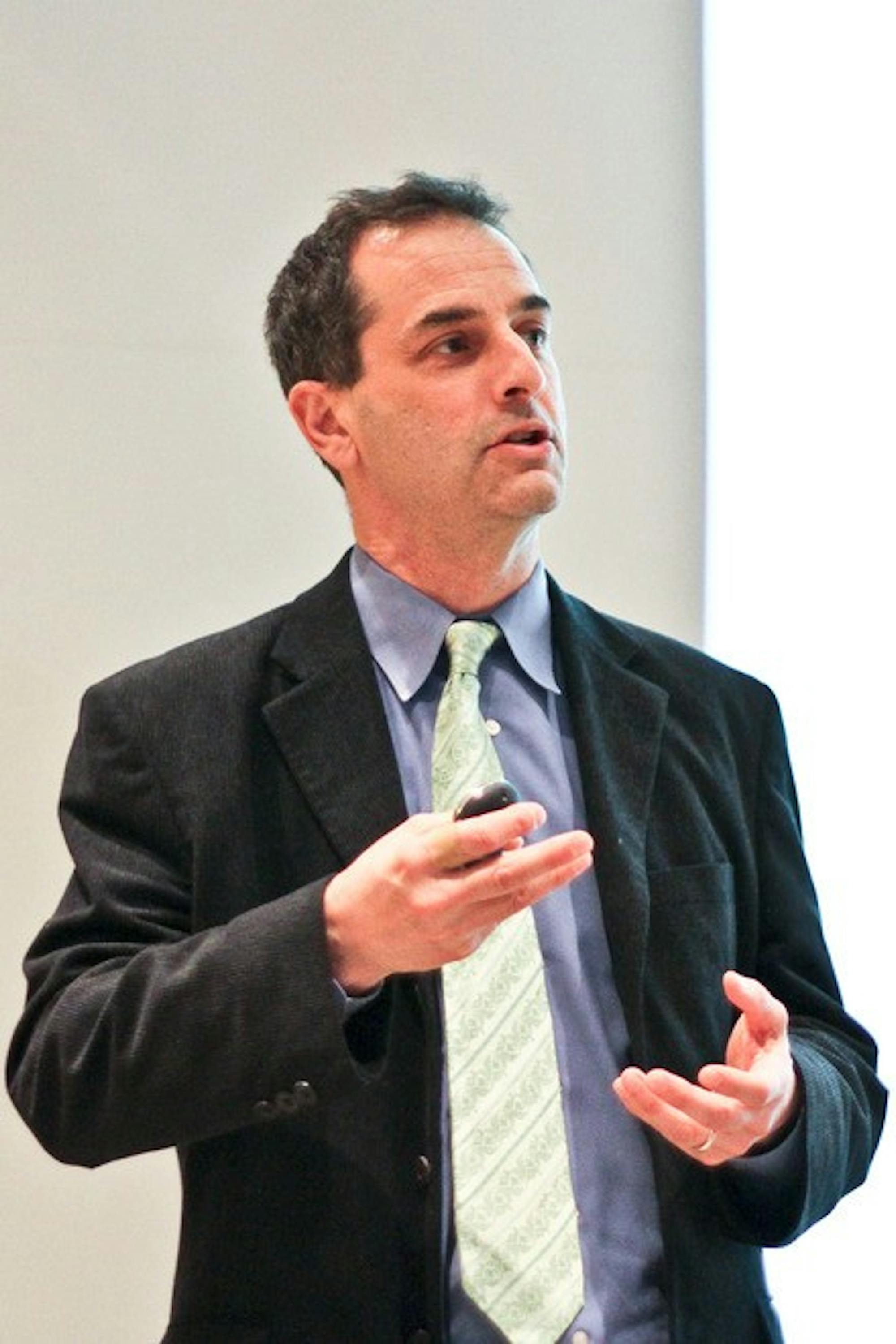"I've been watching Hollywood movies since I was a kid, and there's a message embedded in these things," Goodstein said. "They're about people who take on the job of saving the world in the face of massive environmental challenge, and that's you. That's your life."
Goodstein worked with the Pew Environment Group an organizing offering policy recommendations for environmental issues to present a report quantifying the cost of the damage in the Arctic region to G-7 finance ministers at a meeting in Nunavut, Canada, in February, he said.
The report concluded that the impact of the melting of the Arctic ice could cost global agriculture, insurance and real estate "anywhere from $2.4 trillion to $24 trillion by 2050 in damage from rising sea levels, floods and heat waves," Goodstein said.
The melting of ice covering the Arctic Ocean has degraded the cooling ability of the Arctic, thereby increasing methane emissions and changes in the region's snow cover, according to Goodstein.
"The Arctic acts as an air conditioner for the planet to help keep it cool," Goodstein said. "My job as an economist was trying to put a figure on the damages associated with the breakdown of the air conditioner."
The study considered several main factors to quantify the damage, including the opportunity cost of "aggressive investment" in alternative forms of energy and how much temperature increase a given level of carbon emissions would cause, Goodstein said.
The social cost of carbon, or the cumulative damages associated from the release of a ton of carbon over a 100-year period, is typically the determining factor behind nations' gas taxes and the level of regulations the Environmental Protection Agency will impose, he said.
Economists and scientists often arrive at different estimates of the damaging effects of climate change based on the way they examine the issue, Goodstein said. The scientific community has not reached a consensus on social costs of carbon, according to Goodstein.
"The estimates for the social cost of carbon range from the mid-hundred billions to negatives numbers, which would mean that global warming is good for us and we should subsidize it," he said.
Due to the highly-politicized nature of the information presented at the G-7 conference, the remote location of the meeting was very important in getting unbiased scientific information, Goodstein said.
"The finance ministers chose to meet in Nunavut a place that was really small, really far away, really cold and really dark so there would be no protestors," he said. "With no one else vying to get the attention of the international press corps, it was a great medium for us to present the study."
In the presentation of climate change to the public, it is essential to replace phrases such as "greenhouse effect" with the phrase "carbon blanket," Goodstein said.
"The greenhouse is a terrible metaphor in that people understand the problem but don't really know what do about it," he said. "The carbon blanket is a metaphor that suggests in own solution. We are wrapping the earth in a carbon blanket that is too thick and we need to make it thinner."
The fight for regulation of environmental damage has faced major political setbacks in recent years, according to Goodstein.
"We're at a time of political disappointment for people who have been working hard to make changes in this arena," he said. "Plans to cap emissions by 2010 have largely collapsed, and now there's tremendous backlash that comes in part from traditional conservative ideology and in part from the economic presence of certain corporations in Washington."
The mandate to address climate change falls on those currently in their 20s because they will live through the ramifications of climate change about which scientists are currently speculating, Goodstein said.
"By the time your generation is my age, you'll have to rewire the entire world with clean energy and create a new economic system that is profoundly and fundamentally sustainable at its core," he said. "It will be your job to develop five or six-year strategies to take back the government and engage both parties in developing a new environmental policy framework."
The Bard Center for Environmental Policy offers opportunities for students to earn a Masters of Science in environmental and climate science policy, Goodstein said. The Center also organizes the C2C initiative, which allows high school and college students to communicate with members of Congress and major corporations on environmental policy issues.
The Institute of Arctic Studies at the John Sloan Dickey Center for International Understanding, the IGERT Graduate Program in Polar Environmental Change and the environmental studies program co-sponsored the event, which was titled "Pricing the Arctic Air Conditioner."




